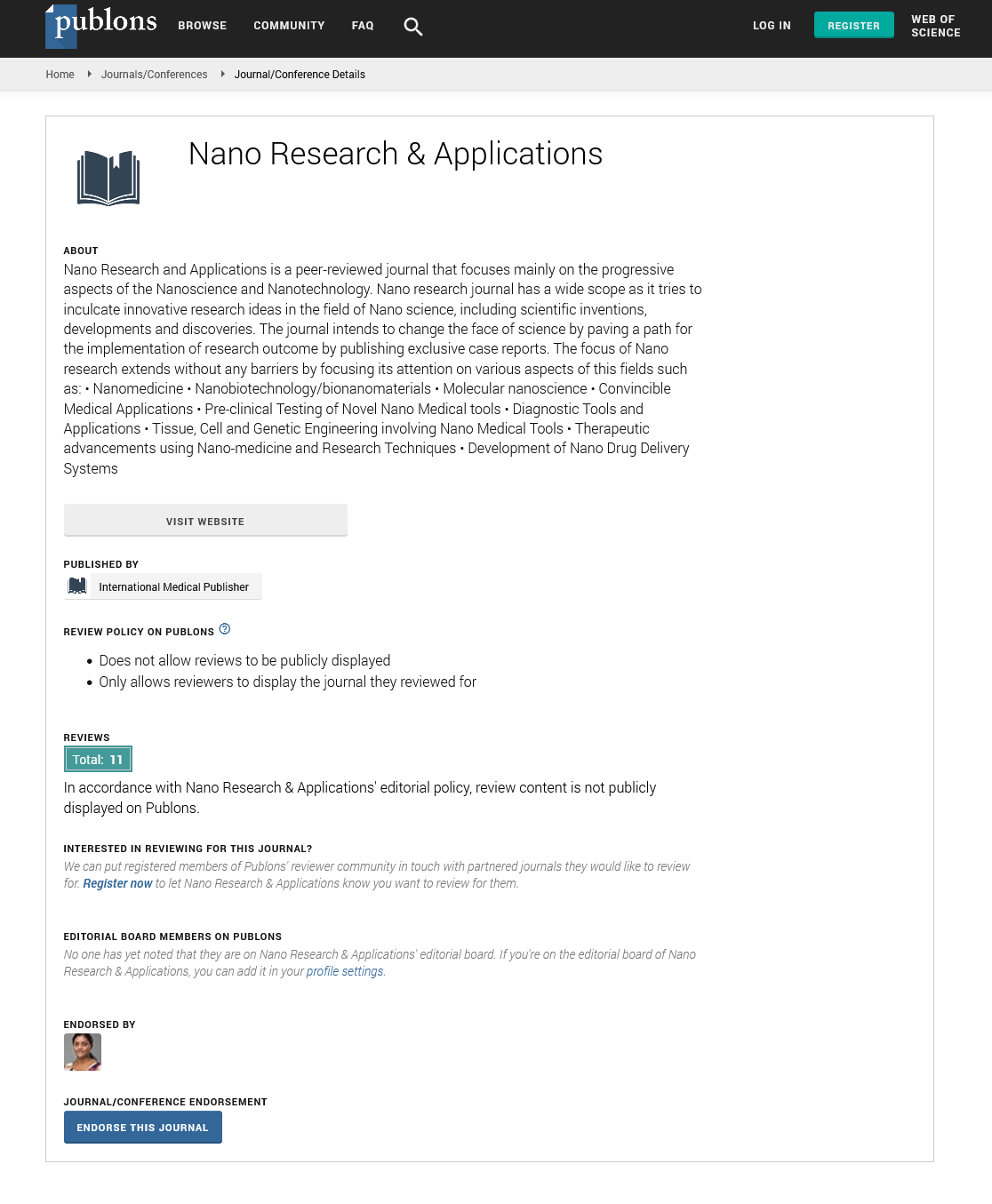ISSN : 2471-9838
Nano Research & Applications
Nanoclinic in the brain: development of nanobioconjugates for MRI virtual biopsy and treatment of brain metastatic tumours that are acting via multiple specific targets
EuroSciCon Conference on Nanotech & Nanobiotechnology Nano
July 12-13, 2018 Paris , France
Julia Y. Ljubimova, Black KL, Patil R, Galstyan A, Ding H, Holler E and Ljubimov V A
Cedars-Sinai Medical Center, USA University of South Florida, USA
Keynote: Nano Res Appl
DOI: 10.21767/2572-5483-C1-001
Abstract
Differential diagnosis of brain enhancement(s) by magnetic resonance imaging (MRI) remains difficult without invasive biopsies. Such MRI enhancement(s) can result from metastasis of primary tumours, radiation necrosis, infections, or a new primary brain tumour. Neurological symptoms are often the same on initial presentation. Methods: For precise noninvasive MRI diagnostics, a new class of nanoconjugates, nanoimaging agents (NIAs) and tumour-specific nanodrugs, based on a poly (β-L-malic acid) biodegradable polymer was developed. The nanoconjugates carrying MRI contrast agent 1-3-7 star-PEG-molecules of gadolinium-DOTA for enhanced MRI, and antibodies or peptides recognizing tumour-specific markers and crossing blood brain barrier (BBB) were synthesised. Nanoconjugates were administered intravenously in a newly developed double brain tumour xenogeneic mouse models bearing human EGFR/EGFRvIII- and HER2-positive tumours. Results: As a proof of principle, HER2- and EGFR-expressing brain tumours were differentiated by nanoMRI-targeted agents. After nano-MRI diagnosis, breast and lung cancer brain metastases were successfully treated with tumour-targeted nanoconjugates carrying antisense molecular inhibitors of EGFR/EGFRvIII or HER2. These inhibitors were delivered to the tumour cell cytoplasm while sparing healthy brain tissue. The treatment resulted in significant increase in animal survival for 66% lung, 75% for HER2+ breast, and 107% for triple negative breast cancer brain metastases. Inhibition of important tumour markers was associated with reduced expression of key proliferation and stem cell markers in treated tumours. Conclusion: A significant advantage of novel nanosystem is delivery of precise imaging agents and specific mRNA suppressors (e.g., antisense drugs) for efficient tumour treatment. They efficiently blocked the synthesis of new HER2 or EGFR/EGFRvIII and suppressed the activation of downstream PI3K/Akt signaling. This technology with novel 1-3-7 star-PEG-molecules of gadolinium- DOTA for enhanced MRI specific signal shows promise for differential MRI diagnosis when brain biopsies are difficult to perform and demonstrate a novel treatment of brain metastases and other pathologies.
Biography
Julia Ljubimova is Professor of Neurosurgery and Biomedical Sciences and Director of Nanomedicine Research Center, Department of Neurosurgery, Cedars-Sinai Medical Center, Los Angeles, USA. She has been working in clinical and basic cancer research during her entire career. Her major scientific discoveries are: 1) The cancer biomarkers as tools for developing new nanomedicine imaging agents and drugs against primary and metastatic tumours and 2) The development of nano imaging and therapeutic agents that are crossing multiple biological barriers including blood brain barrier (BBB). Nano immunology and nano toxicology are novel important subjects of the fight against tumours and inflammation, which are currently studied in the Nanomedicine Research Center. Her research is supported by National Institutes of Health/National Cancer Institute, private and industry grants. She is the author of over 100 publications, reviews and book chapters as well as an inventor on twelve issued patents, and patent applications.
E-mail: Ljubimovaj@cshs.org
Google Scholar citation report
Citations : 387
Nano Research & Applications received 387 citations as per Google Scholar report
Nano Research & Applications peer review process verified at publons
Abstracted/Indexed in
- Google Scholar
- China National Knowledge Infrastructure (CNKI)
- Directory of Research Journal Indexing (DRJI)
- WorldCat
- Publons
- Secret Search Engine Labs
- Euro Pub
Open Access Journals
- Aquaculture & Veterinary Science
- Chemistry & Chemical Sciences
- Clinical Sciences
- Engineering
- General Science
- Genetics & Molecular Biology
- Health Care & Nursing
- Immunology & Microbiology
- Materials Science
- Mathematics & Physics
- Medical Sciences
- Neurology & Psychiatry
- Oncology & Cancer Science
- Pharmaceutical Sciences
